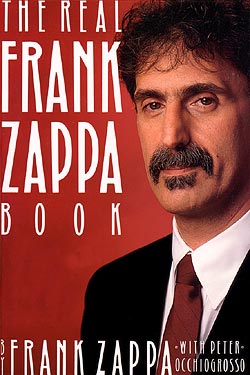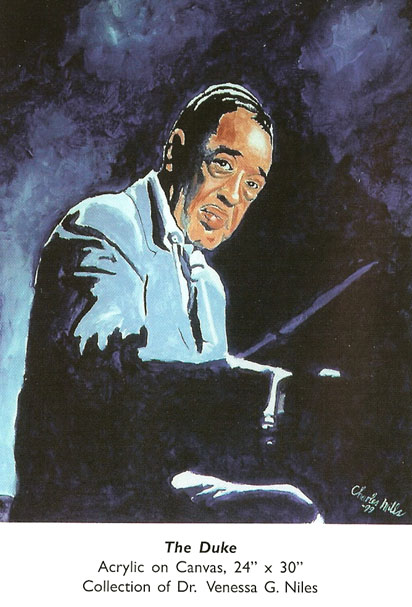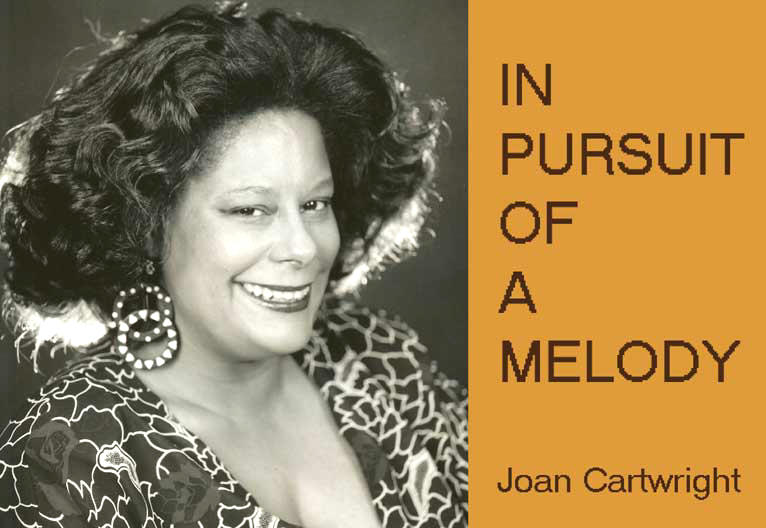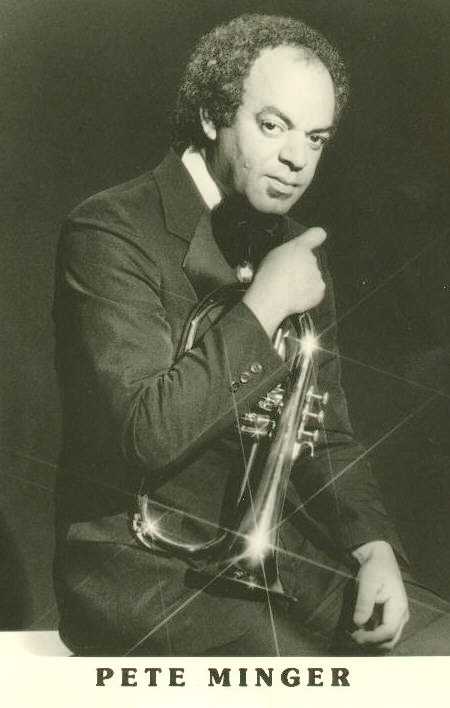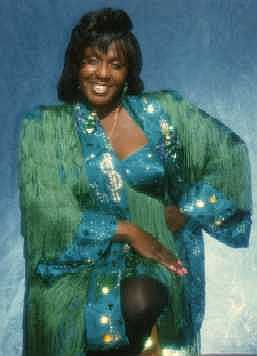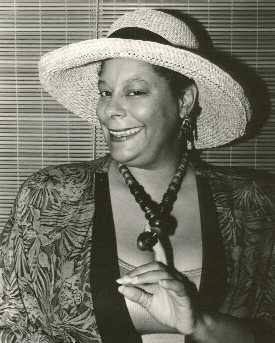|
presents. . . |
Want to discuss
something on this page? |
JAZZQUEST!
|
|
The
State of the Art
Jazz: The Music of Unemployment
I paid $14 for Zappa's book, just so I could have these two pages (106-107) to refer to when talking to my jazz colleagues, like Rita Graham [Vibrations, the only Raylette produced on record by Ray Charles], whose husband fell 10 feet and broke his neck, 10 days after they moved into their Cascade home, here in Atlanta. That was six months ago, and now she's stressing about how to pay her mortgage. She's feeling guilty because her husband had to carry the bills most of the time, since her good gig at Sambuca's came to an end over a year ago. Hmmmm - Jazz: The Music of Unemployment. Then, there's Jace Harnage who sang background for Zappa, worked with and opened for some of the best talent in Las Vegas, Nevada, where she's from. She's been in Atlanta for almost five years and has found it all but impossible to find a gig. Finally, I read the section to my vocalese friend, George V. Johnson, Jr. who agreed that George Wein has single-handedly hand-picked those who would "make it" in the world of jazz. As a male jazz vocalist, Johnson claims he's "Next In Line" to the "Father of Vocalese" - Eddie Jefferson. But George is irate because certain male vocalists who are in Wein's stable, namely, Kurt Elling, Al Jarreau and Bobby McPherrin, had an online conversation agreeing that Jon Hendricks is the "Father of Vocalese". Outraged by this insanity, Johnson called the egroup on this error and when other well-known musicians chirped in with support for Jefferson and against Hendricks, the blog disappeared. My first-hand experience with a George Wein associate, John Phillips, left me feeling empty-handed and -headed. Though I sang on the off-festival of the Swizz Montreux Jazz Festival with a shady trumpeter, Daniel Thentz, in 1990, who was later found to be embezzling money from a smaller, local festival. I was never part of the inner circle of singers presented by the Wein Dictatorship, which included Cassandra Wilson, Dianne Reaves and Opera Singer Kathleen Battle, who should have been gonged the moment she opened her mouth to sing "Take The 'A' Train"! because her classical training bled through her attempt to sing jazz. It was horrible to my ears. Of course, I understand that Battle, Reeves and Wilson are part of the stables of musicians owned and operated by record labels in cahoots with the Wein Dynasty. So are Neena Freelon, Diane Krall and Regina Carter. And, of course, it sounds like I'm bitter that I'm not with a recording label. But, let's explore the issue to see if I'm just being paranoid. In 1983, Freddie Hubbard heard me play my tune, "Sweet Return", backstage at Robin Hood Dell, in Philadelphia, at the Kool Jazz Festival, owned and operated by The George Wein Monopoly. I'd known Fred since I was 19, and I'd been giving him my songs since I was 27. In 1983, I was 34 and well-known in the Philly area as a straight ahead jazz singer. The only reason I was at this festival was because a group of us local musicians had staged a boycott at the first press conference, in 1982, to protest the fact that no local cats [or kittens] were included on the bill. To appease us, they made us "Honorary MCs", which gave me the opportunity to introduce Ella Fitzgerald in 1982. Of course, it was one of the best moments of my life and I won't ever deny that, since Ella came out on stage while I told the audience to get home safely, and hugged me in front of them - all 10,000 of them! In 1983, the festival folks asked me to introduce Patrice Rushen. I agreed because I wanted to meet her and because I'd get to be backstage when Freddie's group performed. So, in Fred's dressing room, I played my song, Sweet Return, on the lovely white, baby grand piano. When Joe Sample came in to visit, Freddie walked Joe over to the piano and said, "play your tune, again, Joan!" Now, I was floored. Here I was playing my song for Joe Sample and Freddie Hubbard. I was shaking in my shoes. Then, out of the blue, Fred tell Joe that he's going to record my tune, the next day, on Atlanta Records. Well, I didn't breathe for 24 hours. I was blue by the time we got to the studio in midtown Manhattan. Joanne Brackeen sat with me to work out the chords and I was in complete frozen animation when I listened to the magnificent, 9-minute recording with Freddie (flugelhorn), Joanne (piano), Lew Tabackin (flute), Roy Haynes (drums) and Eddie Gomez (bass). I felt like I'd just given birth to a new-born baby! Now, that was in 1983. It's 2006, and I'm still bathing in the glow of that experience. Why? because music composition is a serious thing. But being a woman in the world of classics is not the best way to get a lot of press. So, I'm really going to have to work extra hard to get my book out, to get the professors of music to recommend it or even make it required for some music classes - composition, history, etc. - because the tradition shows that women are NOT marketed to the music listening or education markets. What to do? Should I believe what Zappa says about Jazz: The Music of Unemployment?
It's scary. It's sickening. It's almost impossible because the contemporary music scene has labeled women "hoochie mama" to the tenth degree. So, you don't take your clothes off? Well, you cannot expect to be on a stage, can you? Ugh! This makes me nauseous because I spent 54 years becoming a Diva and, now, I find out the world of music mostly caters to gay men and women. My career started when I was being prepared, at the age of 4, to perform "Walking My Baby Back Home" and "Somebody Loves Me" at the Loew's Hillside, in Queens, New York. I've been on stage, practicing my music, longer than most doctors have practiced medicine or lawyers have practiced law. Darn, it's really discouraging, since I don't have health insurance, don't pay into social security, don't look forward to a retirement pension and don't have any assurance that my book will be successful and pay me lots of royalties. As a matter of fact, even though I've single-handedly distributed over 5,000 copies of my CD, "Feelin' Good", I still don't have much income to show from it. Yes, I did make some money, selling them for $10 a piece, but I probably gave away half of them, simply because most people, particularly, Americans think music is FREE! Well, it's not. It costs to learn music, to make music, to record music, to package music, to distribute music, to advertise music, to market music. It costs. It costs. It costs. Everything cannot be a DEMO. People need to understand that and musicians need to STOP giving their music away. Darn, it's like musical prostitution out here, today. Visit Joan's lecture page - http://www.fyicomminc.com/lecture.html |
 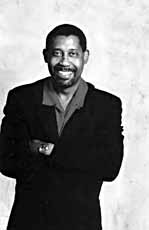 Former D.C. bus driver sings jazz, vocalese Johnson worked his way up with song, now assists AU vocalists
Imagine listening to a seasoned jazz
musician rip into a bebop solo so sizzling and smooth it makes your senses
tingle. Close your eyes and play along. Try and picture the sweat bouncing
off the performer like the notes that leap through the air. See if you can
hear the mesmerizing melodies go up and down, bringing you through joy and
sadness, taking your emotions on a sensory experience unlike any other.
Now picture that musician and his beloved instrument: His voice.
After three years of patiently
watching Jefferson perform, Johnson finally received a call from up to the
stage to perform with him at a club in Philadelphia. Johnson still
remembers the exact words uttered by Jefferson that night: "This is one of
my students, George V Johnson ... he's next in line," Johnson said. * * * * * DOES JAZZ = UNEMPLOYMENT?
If Duke Ellington had to beg some George Wein assistant backstage for ten bucks, what the fuck was I doing with a ten-piece band, trying to play rock and roll - or something that was almost rock and roll? - FRANK ZAPPA Students of Music and Women’s History and teachers of Humanities, Arts, Music and Literature, these books and CDs will enhance your class, guaranteed! Order Joan’s CDs and books, today!
|
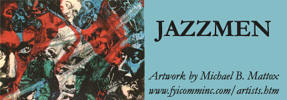 |
|
||||
In the meantime, here's some interesting information from Britannica.com on Jazz |
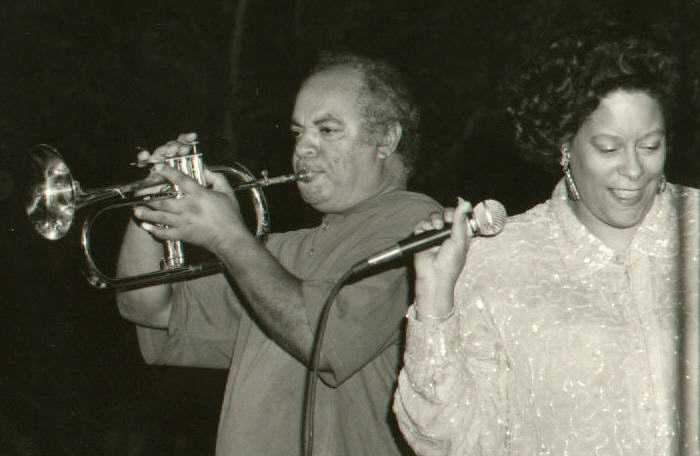 |
|
JAZZ DISCUSSION FROM BRITANNICA Had it not been for the traffic in slaves from West Africa to the United States, jazz would never have evolved, either in the United States or Africa, for jazz is the expression in music of the African native who is isolated both socially and geographically from his natural environment. /bcom/eb/article/7/0,5716,117527+1+109538,00.html Among the West African tribes supplying victims for the slave trade, music, and especially vocal and percussive music, had developed in a way quite unknown to the academic Western ear. Scales and harmony were purely intuitive, and music was deployed less as an abstract aesthetic gesture than as a specific language conveying subtle shades of meaning and emotion. By varying the pitch of a note or changing the inflection of the voice while uttering a musical sound, the performer could convey far more concrete messages than his sophisticated Western counterpart. If his art was cruder, his function was more practicable. Although most of the prehistory of jazz is speculative, the flexibility of this musical language, unfettered either by conventional ideas of correctness or by precedent, resulted in the unwitting development of a scale utterly original so far as the West was concerned. This scale, in which the third (E in the key of C), or mediant, and the seventh (B in the key of C), or leading tone, were flattened and thereby turned into what are sometimes referred to as "blue notes," became the basis of the language that eventually emerged as jazz.
|
(/bcom/eb/article/idxref/0/0,5716,395908,00.html ) The transfer of these West African tribal traditions to the slave fields, railways, and rivers of the southern U.S. was of advantage to oppressed and oppressor alike, the slave obviously taking solace in the cultural memory of his own collective past, the slave owner encouraging work songs in the same spirit as an infantry general might approve of military bands--for the stimulus they gave to work rate. Because of the oddly eccentric nature of its whole being, jazz has enjoyed the questionable benefits of definitions that are either tautological--"Jazz music is any music played by jazz musicians"--or confusing to the layman--"Jazz is a matter of lip-technique." What can be said with confidence is that, whereas in more conventional musical areas the artist is fundamentally an executant expressing the findings of the creative mind of the composer, in jazz the performer is usually his own composer. Within the strict meaning of the term, there can be no such thing as a jazz theme, although of course some themes will lend themselves to the jazz idiom more readily than others. The customer, unable to acquire the recording of Brahms's Fourth Symphony conducted by Herbert von Karajan, would probably settle for someone else's recording of that work. But the buyer thwarted in his attempt to buy the jazz musician Duke Ellington's version of "Caravan" might well accept as a substitute anything else played by Ellington. That is why, in jazz, there is at least one truism that has always applied: the performer playing a theme always tries to make it sound not like itself but like himself. [Click here for more on Jazz at Encyclopedia Britannica.com http://www.britannica.com] |


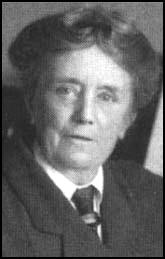 While
waiting for copies of my book, AMAZING WOMEN JAZZ ARTISTS to be copied and
bound at a local print shop, I visited a local Barnes & Noble. I found
myself browsing books in the music department and noticed that only one
songbook of a particular composer was on the shelf, Paul Simon's. I didn't
see a songbook by Stevie Wonder, Roberta Flack, Basia, no other composer
besides Paul Simon was represented. Then, I picked up a book of the lives
of classical composers. I turned to the contents and found only one female
composer,
While
waiting for copies of my book, AMAZING WOMEN JAZZ ARTISTS to be copied and
bound at a local print shop, I visited a local Barnes & Noble. I found
myself browsing books in the music department and noticed that only one
songbook of a particular composer was on the shelf, Paul Simon's. I didn't
see a songbook by Stevie Wonder, Roberta Flack, Basia, no other composer
besides Paul Simon was represented. Then, I picked up a book of the lives
of classical composers. I turned to the contents and found only one female
composer,
